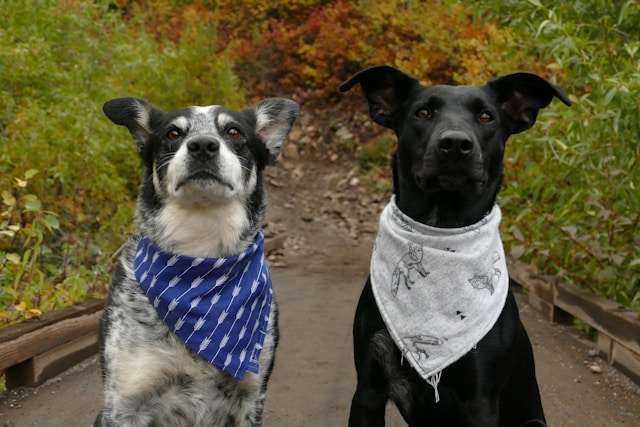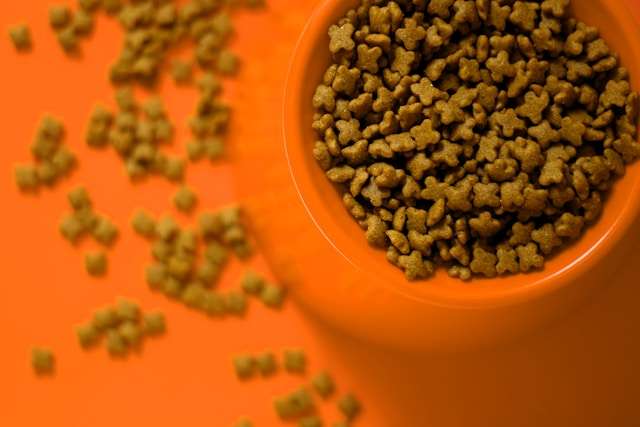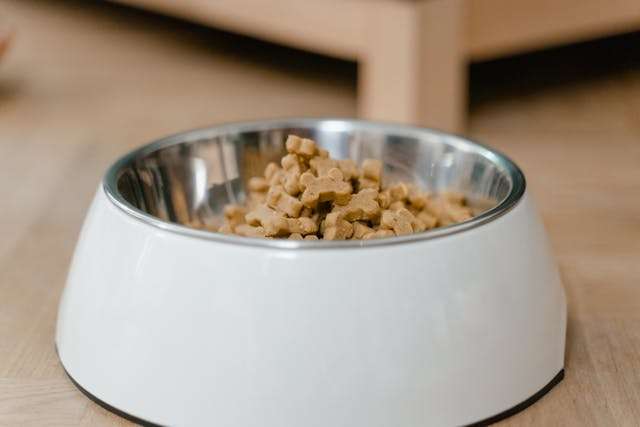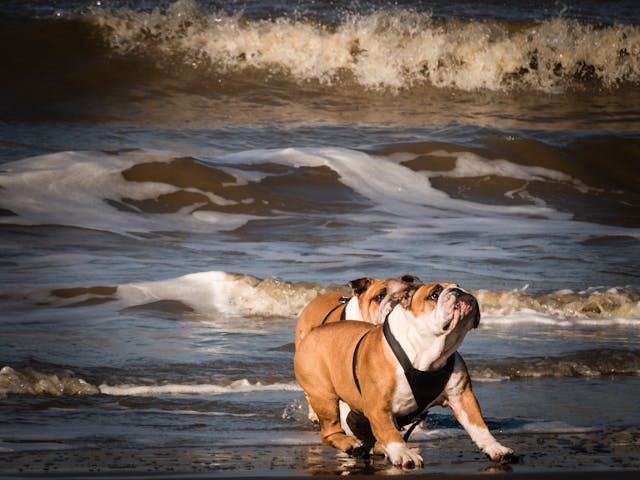Can Dogs Eat Venison Meat? Nutritional Benefits and Safe Tips
Table of Contents
Can dogs eat venison meat? Venison is a rich source of protein, B vitamins, and minerals like zinc, phosphorous, and iron. These nutrients and a shiny coat can help your dog maintain healthy energy levels. Plus, venison can be a fantastic alternative if your dog has allergies to more common proteins like beef or chicken!
If you are considering adding venison to your dog’s diet, consider commercial dog foods that already include venison, or prepare homemade venison meals yourself. Please consult your veterinarian to ensure it fits your pet correctly.
Key Takeaways
- Venison is a nutritious and safe option for dogs.
- It is rich in protein, B vitamins, and minerals.
- Consider both commercial venison dog foods and homemade meals.
Nutritional Benefits of Venison for Dogs
Venison offers many dietary benefits for dogs, providing essential vitamins, minerals, and lean protein. This helps maintain energy, supports healthy skin and coat, and promotes well-being.
High in Protein and B Vitamins
Venison is packed with high-quality protein. Protein is essential for your dog’s muscle growth and repair. It’s also good for maintaining energy levels so your dog stays active and playful.
B vitamins found in venison, like B12 and B6, are crucial. They help in energy metabolism and keep your dog’s nervous system healthy. These vitamins also contribute to healthy skin and coat, making your dog look shiny and well-groomed.
Venison stands out compared to standard proteins like beef and chicken. It’s a novel protein, meaning it’s less likely to cause allergic reactions. This makes it a great choice if your dog has food sensitivities.
Rich in Minerals
Venison is rich in essential minerals like iron, zinc, and phosphorus. Iron is vital for blood health and energy. It helps your dog stay active and prevents fatigue.
Zinc is another critical mineral in venison. It supports your dog’s immune system, helping to keep infections at bay and promoting a healthy coat and skin.
Phosphorus is essential for bone health. It works alongside calcium to strengthen your dog’s bones and teeth. This is especially beneficial for growing puppies and older dogs.
Venison’s high mineral content makes It an excellent addition to your dog’s diet. It ensures your pet gets the nutrients it needs for a healthy and happy life.
Comparatively Low in Fat and Cholesterol
Venison is lean and lower in fat and cholesterol than beef and chicken. This is important if your dog needs to manage its weight.
Low-fat foods help in preventing obesity and related health issues like diabetes. Venison’s low cholesterol is also kinder to your dog’s heart health.
Including lean meats like venison in your dog’s meals can keep them fit. It ensures they get the nutrition they need without the extra calories. This balance helps maintain a healthy weight and supports overall well-being.
Venison as a Novel Protein Source
Venison can be a valuable addition to your dog’s diet. It offers key benefits, especially for dogs with sensitive stomachs or allergies. Discover how venison helps, along with some real-life stories from pet owners.
Definition and Benefits for Dogs with Allergies
Venison is considered a novel protein. This means it is less commonly used in dog foods, which makes it an excellent option for dogs with food sensitivities or allergies to more common proteins like chicken or beef. Since many dogs are not exposed to venison often, their bodies are less likely to react negatively.
Venison can help reduce symptoms like itchy skin, digestive issues, and ear infections in dogs with allergies. Including venison in your dog’s diet might help if your dog has been struggling with these problems. The high-quality protein from venison supports muscle maintenance and general health.
Another benefit of venison is it’s rich in essential nutrients. Venison contains B vitamins, iron, zinc, and phosphorus, all of which contribute to your dog’s overall health. It is also low in fat, making it suitable for dogs that need to manage their weight.
Real-Life Success Stories
Many pet owners have seen significant improvements in their dogs’ health after switching to a venison-based diet. One dog owner reported that their dog’s chronic skin issues cleared up after they started feeding venison. This improvement was surprising and a huge relief for the pet and owner.
Veterinarians often recommend venison for dogs with food allergies. One vet shared a case where a dog suffering from severe digestive issues and constant itching showed remarkable improvement after being introduced to a venison diet. These examples highlight the potential benefits of venison as a primary protein source for dogs with sensitivities.
If you’re considering trying venison for your dog, consult your vet and monitor your pet closely for any changes in health and behavior. This protein source could be the key to a happier, healthier pet.
Incorporating Venison into Your Dog’s Diet
When considering adding venison to your dog’s meals, consider safety, cooking methods, and how raw venison could impact their health.
Consulting Your Veterinarian
Before you start giving your dog venison, talk to your veterinarian. They know your dog’s health history and can tell you if venison is a good choice. Some dogs may have allergies or specific health conditions that make certain foods better or worse.
Venison is high in protein and B vitamins, but a vet can confirm its suitability. They’ll also advise on the right amount of venison to include in your dog’s diet and how to balance it with other nutrients. Consulting with a professional helps prevent potential health risks and ensures your dog gets a healthy diet.
Preparing Cooked Venison
Cooking venison for your dog can reduce the risk of harmful bacteria like E. coli and salmonella. Always cook venison thoroughly to kill any bacteria that might be present. You can boil, bake, or grill the meat, but avoid adding seasonings, spices, or onions, as they can be toxic to dogs.
Cut the venison into small, bite-sized pieces before cooking. This makes it easier for your dog to eat and digest. Mix the cooked venison with your dog’s food or serve it alone. Ensure that cooked venison cools before serving it to your dog to avoid burns.
Understanding Raw Venison
Some dog owners prefer raw diets, thinking they mimic a dog’s natural eating habits. Raw venison is high in protein and many vitamins and minerals but carries risks. Raw meat can contain harmful bacteria like E. coli and salmonella, making your dog sick.
If you feed raw venison, buy it from a reputable source to ensure quality. Also, practice good food safety habits: store the meat properly and keep everything clean to avoid contamination. Consult with your vet about the benefits and risks of a raw diet and get advice on safe handling and preparation.
Venison in Commercial Dog Foods
Venison is a popular ingredient in many dog foods because it is lean and nutrient-rich. You can find venison in various forms, such as kibble, canned food, and treats. Selecting quality venison products for your dog is essential to ensure they get the best nutrition.
Types of Venison Dog Products
Venison dog products come in several types. Venison kibble is a standard option that provides a crunchy texture that dogs enjoy. It’s convenient and usually includes other balanced ingredients. Canned venison food is moist and can be mixed with kibble to make meals more appealing.
Venison treats such as jerky are great for occasional snacking and training. They offer a high-protein, low-fat option. Another product is deer meat for dogs, which is available in commercial preparations that highlight venison as a primary protein.
Some popular brands include venison in their dog food lines to cater to dogs with sensitivities or those needing novel proteins. These products often focus on the venison’s quality and origin, ensuring it’s a quality ingredient for your pet.
Selecting Quality Venison Dog Food
When choosing venison dog food, look for high-quality ingredients. Check the label to ensure venison is listed as a primary ingredient. This indicates a higher quantity of meat compared to fillers.
It’s also important to consider the nutritional balance. Venison dog food should provide essential B vitamins and minerals like zinc and phosphorus. These nutrients boost your dog’s energy levels and support overall health.
You can also look for reviews and ratings from other pet owners. They often share their experiences about the benefits and any issues with specific brands. Brands such as these are recognized for their high-quality venison dog foods that have been well-received by many dog lovers.
Incorporating venison into your dog’s diet can be a great way to provide them with a flavorful and nutritious meal option. Look for products that best meet your dog’s specific dietary needs.
Crafting Homemade Venison Meals for Dogs
Making homemade venison meals for your dog can be a fun and healthy way to give them a tasty treat. Venison is lean and packed with nutrients. Here’s how to whip up some delicious meals for your furry friend.
Ingredients to Use
Using venison is excellent because it’s low in fat and rich in protein. You can also add:
- Brussels sprouts
- Cranberries
- Omega Plus oils
- Safflower oil
Simple Recipe
- Brown the Venison
In a nonstick skillet, brown ground venison over medium-high heat. Stir it frequently. - Add Veggies and Fruits
While the venison is still slightly pink, add Brussels sprouts and cranberries. - Combine Ingredients
Combine the browned venison, safflower, and Omega Plus oils in a large mixing bowl.
Nutritional Tips
- Venison Liver: Small amounts of venison liver, rich in vitamins and minerals, can boost nutrition.
- Eggs and Dairy: Cook 8-10 eggs and mix them in. You can scramble or boil them. Add two cups of plain Greek yogurt or cottage cheese for extra protein.
Quick Cooking Ideas
Cooking venison doesn’t have to be complicated. Here’s a quick idea:
- Boil or Bake: Boil or bake venison without any seasonings. Dogs do not need spices, and some can be harmful.
Mixing it Up
For a well-rounded meal, ensure you mix both wet and dry ingredients. If you plan on using a base mix (like rice or oats), adjust the recipe by removing items the base mix already includes.
Making venison meals for your dog is easy and rewarding. Just remember to keep things simple and avoid any harmful additives! For more detailed steps, check out this homemade venison dog food recipe. Happy cooking!
Potential Concerns and Considerations
Several factors should be considered when feeding your dog venison. These include ensuring nutritional balance, addressing risks related to bones and choking, and preventing contamination and diseases.
Addressing Nutritional Balance
Feeding your dog only venison can lead to imbalances. Venison is high in protein and vital nutrients but lacks some essential elements in a balanced diet. It’s crucial to mix venison with other foods to provide a variety of vitamins and minerals. You can combine venison with vegetables and grains to achieve this balance.
Monitoring your dog’s energy levels and overall health is essential. For instance, lacking certain nutrients can cause skin irritations or low energy. Always consult with a veterinarian to ensure your dog gets a balanced diet. This can help prevent any deficiencies or health problems.
Risks Associated with Bones and Choking
Be aware that venison bones can be hazardous to dogs, especially when cooked. Cooked venison bones become brittle and can splinter easily, causing choking or severe injuries to your dog’s digestive tract. Remove bones from venison before feeding them to your dog to avoid these risks.
If your dog enjoys chewing on bones, consider safer alternatives like synthetic chewing toys or bones designed for dogs. These alternatives can help satisfy your dog’s chewing instincts without the risks of real bones. Remember, safety comes first!
Contamination and Disease Prevention
Contaminated venison can pose serious health risks to your dog. Raw venison can contain harmful bacteria and parasites such as E. coli and salmonella. To prevent illnesses, cook the venison thoroughly before feeding it to your dog. Cooking kills these bacteria and parasites, making the meat safe to consume.
Another concern is chronic wasting disease, which affects deer and can be transmitted through infected meat. Ensure the venison is sourced from a reliable supplier and tested for diseases. This can protect your dog from potential health risks associated with hunted deer meat.
Following these guidelines consistently can help ensure the health and safety of your dog when incorporating venison into its diet.
Frequently Asked Questions
Feeding dogs venison can be a good choice due to its nutritional benefits and potential to help with food sensitivities. But there are some essential things to remember when introducing venison into your dog’s diet.
How should venison be prepared for safe consumption by dogs?
Always cook venison thoroughly to kill harmful bacteria like Salmonella or E. coli. Boiling or baking are good methods. Avoid using seasonings, garlic, or onions since they can harm dogs. Make sure the meat is free of bones to prevent choking hazards.
What are the health benefits of feeding dogs venison compared to other meats?
Venison is high in B vitamins and minerals like zinc, phosphorous, and iron. These nutrients help maintain energy levels and support immune function. Compared to beef, Venison also has less fat and cholesterol, which makes it a good option for dogs needing to manage their weight.
Are there any risks associated with giving my dog venison jerky?
Venison jerky can be risky if not prepared correctly. Store-bought jerky often contains additives and preservatives that aren’t healthy for dogs. It’s better to make your jerky by dehydrating plain, cooked venison slices. Constantly monitor your dog when feeding it jerky to avoid choking.
Can incorporating venison into a dog’s diet help with food sensitivities?
Venison is considered a novel protein, meaning it’s less likely to cause allergic reactions than more common proteins like beef or chicken. Many commercial pet foods offer venison-based recipes for dogs with food allergies or sensitivities.
What is the best way to introduce venison into a dog’s diet for the first time?
Start with small amounts mixed into your dog’s regular food. Gradually increase the portion of venison over a week to see how your dog reacts. Watch for any signs of digestive upset or allergic reactions. Consult with your vet if you have any concerns.
Are there specific types of venison-based products recommended for dogs?
You can find various venison-based products, including kibble, canned food, and treats. Brands like PetMD and Daily Dog Drama offer options formulated to meet your dog’s nutritional needs. Reviews from other pet owners can also help guide your choice.







